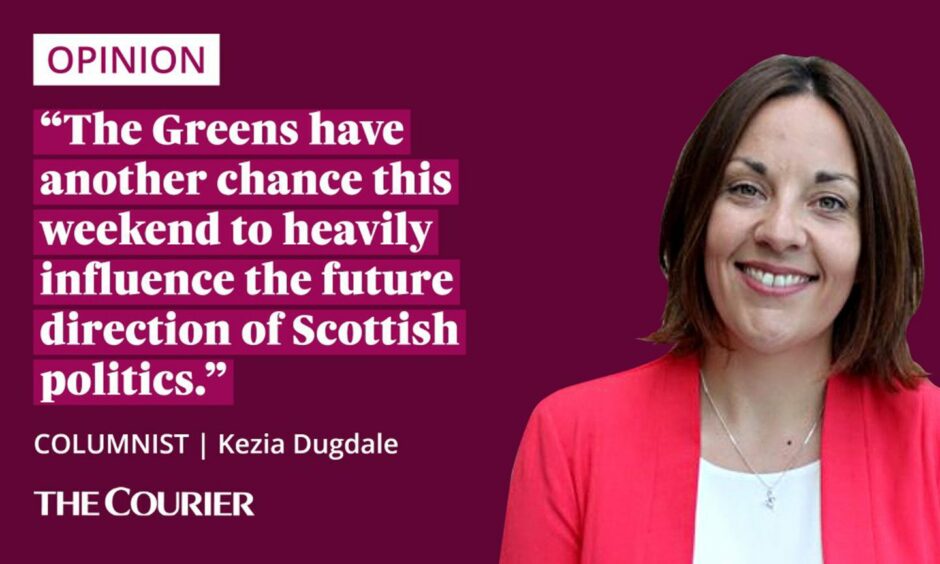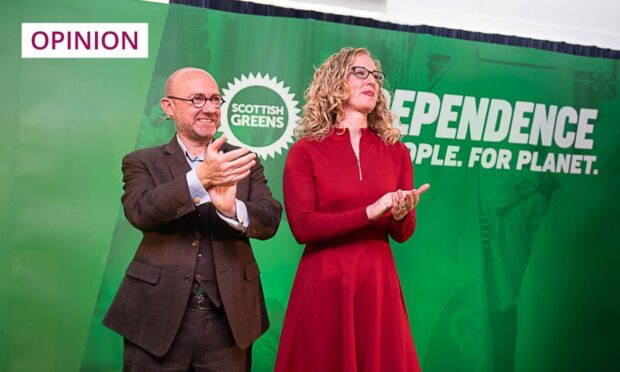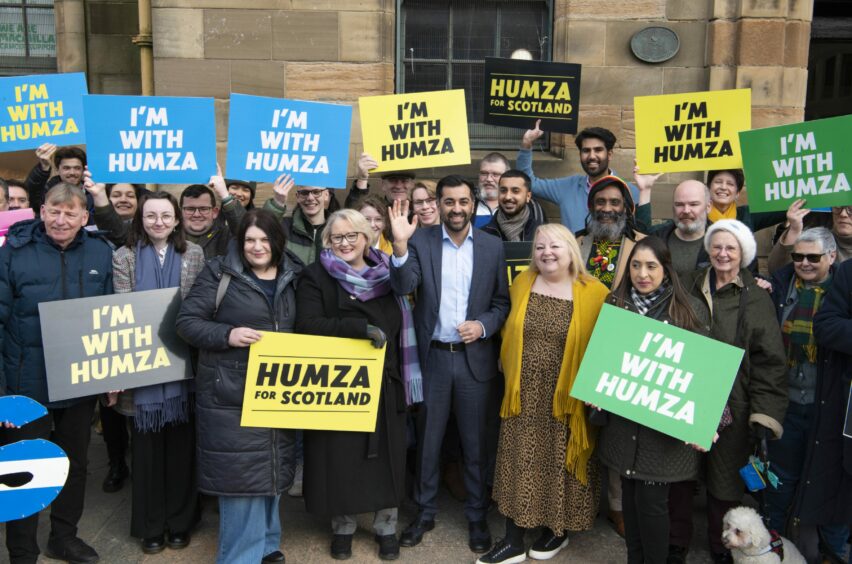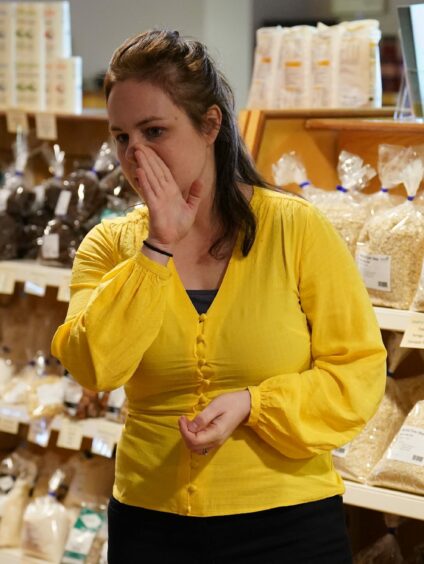I re-read the Bute House Agreement this week (because that’s how I roll on a cold Tuesday morning).
That’s the paper which details the deal struck between the SNP and Greens to work together in operation. It sets out a list of policies they will work on together collectively and where they won’t, all in the spirit of delivering stable government for Scotland
Of course it’s all looking a little wobbly now in light of the ongoing SNP leadership contest. And its long-term fate will be determined by the result.
Understandably much of the focus to date has been placed on what the prospective SNP leaders think of its future.
But what say the Greens, who will meet at their annual conference this weekend?

Casting an eye over their agenda, in between sessions on “Making the circular economy bill work” and “What next for nature,” I found one called “Bute House Agreement Update”.
And I wondered what could be possibly be said before noon on Monday when the result of the SNP contest will be known.
The Green Party are proudly and sometimes piously democratic in their approach to party politics. Surely they will create space at their conference to discuss the what ifs?
One might assume that if Humza Yousaf – a candidate who has put continuity front and centre of his pitch – wins, there will be little to discuss, and conference will just nod the continuation of the deal through on acclimation.
But might the Greens be having broader jitters?
Is the progress they are making in power worth the pain?
Scottish Greens’ vote important to next SNP leader
The controversy surrounding the Deposit Return Scheme has brought little but opprobrium and ridicule to the party from all sides.
The business community are alarmed at the cost, the impracticalities and the additional labelling red tape.
Meanwhile lefties, predisposed to wishing the scheme well, are aghast at the reported £300,000 salary being paid to the scheme’s chief from the mighty global corporation Biffa.
And surely all bets are off if Kate Forbes wins.
The Greens are among the loudest supporters of the Gender Recognition Reform Bill which she opposes.
Beyond that minor detail, there is also the clunking reality of two very different economic propositions.
Ms Forbes is resolutely pro economic growth as the means to address poverty and less keen in progressive taxes, while the Greens want to move away from traditional measures like GDP.
Should she win, the cabinet will also likely feature SNP figures with the capacity to enrage the Greens more than an Argentinan fillet steak served in a plastic box.
I think it’s unlikely that the Greens will refuse to vote for Ms Forbes as First Minister. But it’s not implausible.
Despite all their concerns and reservations, the consequences of withholding support could lead to a snap Holyrood election which I struggle to see any of the political parties having any real appetite for at the moment.
Election isn’t in anyone’s interests
The Tories wouldn’t want it so early on in Rishi Sunak’s premiership.
And Labour would surely prefer to fight the next Scottish Parliament election with UK Labour in power. That’s their only chance of moving the conversation away from the quagmire of the constitution, showing changing is possible within the UK.
Voters would ask the SNP why their internal mess has brought them to the polls so soon after they were given another pretty comprehensive mandate from the Scottish people.

The waiting game, the option to muddle through and play for time, works for all parties.
Green members will surely also be alive to fact that if the SNP move even slightly to the right, it creates more space for pro-independence parties of the left to capitalise on. Especially in Scotland’s big towns and cities where the Greens are already on the march.
Some short term pain for long term gain might just be worth it.
So might there be more creative approaches ahead?
Scottish Greens could forge new arrangement with SNP
The Bute House agreement doesn’t require the party’s leaders to be the two designated ministers invited to join the SNP Government.
SNP voters support the party’s power-sharing agreement with the Scottish Greens but exclusive new polling shows they are at odds with the wider public. https://t.co/gfMMOBM7Th
— The Courier (@thecourieruk) March 13, 2023
Perhaps a shake up here could see someone like Ross Greer MSP, the party’s education spokesperson take up office as a Schools Minister for example, freeing up Patrick Harvie to focus on the Greens’ broader political appeal.
Could the beleaguered Lorna Slater make way for Ariane Burgess MSP to take office around local government policy?
The Greens have another chance this weekend to heavily influence the future direction of Scottish politics, rooted in the fundamental question of whether they are a party of power or one of protest.
This time next week, Scottish politics could be trundling along into its post Nicola Sturgeon future on the same road it trod before.
Or the tectonic plates could be fundamentally shifting.
The SNP contest might end this weekend but the political games are only just beginning.














Conversation